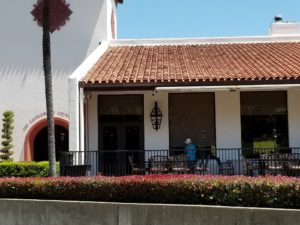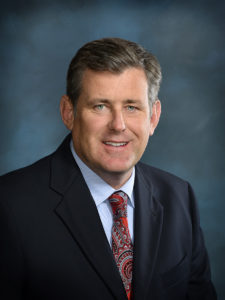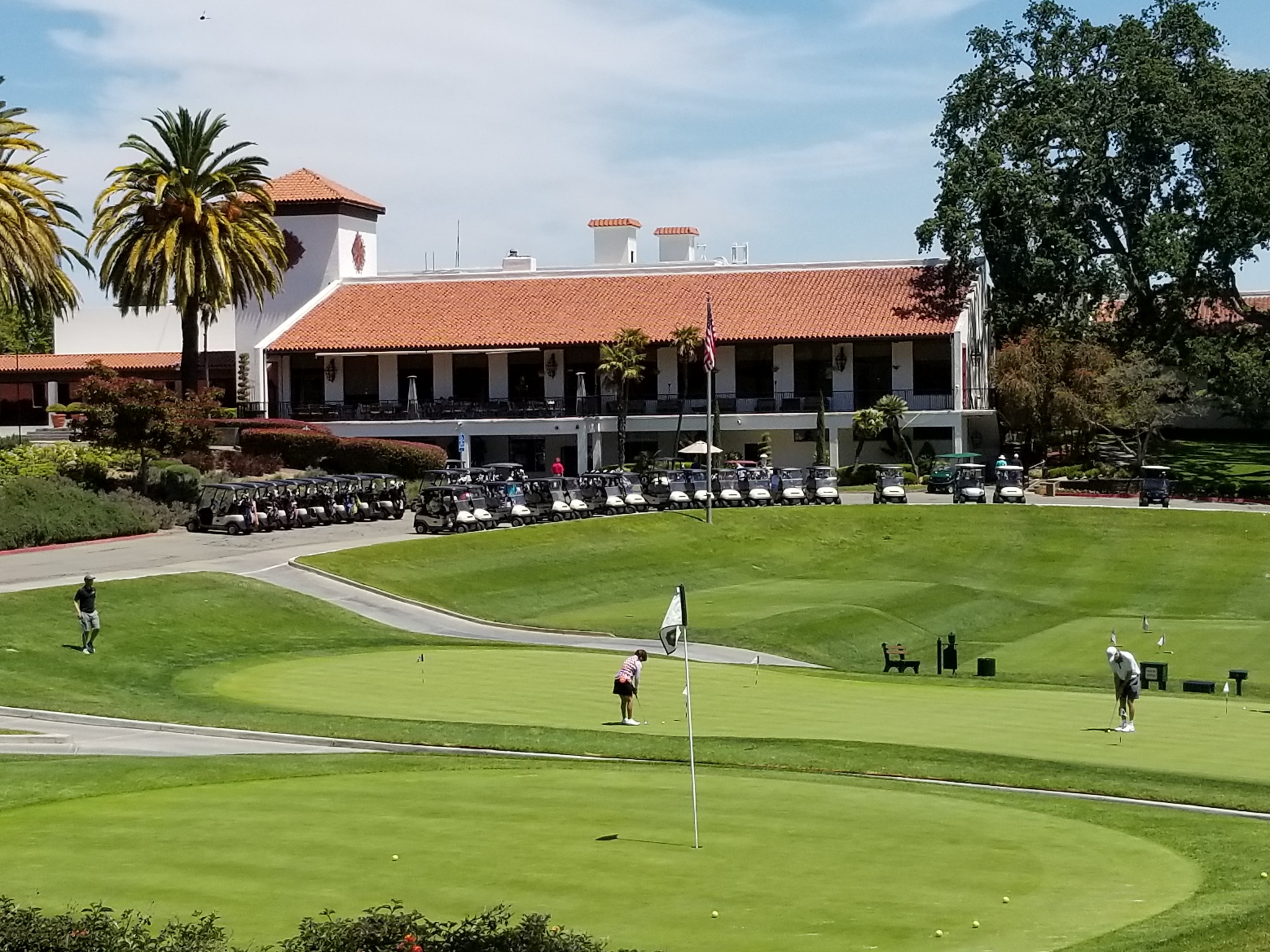Members of the Castlewood Country Club in Pleasanton are facing some difficult decisions this summer.
The iconic club, which features two 18-hole golf courses, has been under pressure from Alameda County to meet the standards of the Americans with Disabilities Act. The current clubhouse was built in the mid-1970s after the original Phoebe Hearst estate burned down in 1972. The ADA took effect in 1990.
General Manager John Vest said the staff and board of directors are exploring all options. The club hired an outside firm to evaluate the ADA issues and that company issued a 387-page report that is guiding the discussion of alternatives.
One of the more interesting ones was revealed to members recently in a letter from new club president Kevin Wrenn. He took over the presidency in April.
His letter said, “As you are aware, our club has ADA issues that could cost the club millions to rectify. The Board of Directors and the House sub—committees have been studying a variety of options around ADA compliance at Castlewood and how to best fund the renovation or replacement of our clubhouse.”
He noted that the membership could fund the improvements themselves. That could result in assessment of thousands of dollars to the 600 families who own equity memberships. There are 400 additional social members.
Wrenn wrote,” One other financing option we have been studying is a land development venture that Ponderosa Homes has submitted to Castlewood. Ponderosa has proposed to work in partnership with Castlewood to entitle a large portion of the Valley Golf Course for residential development.”

The venture, if successful, could provide enough capital to potentially cover the ADA issues or replace the clubhouse.
“The purpose of my note is to inform you at this time Ponderosa Homes and Castlewood are exploring the feasibility of this proposed venture. Since public discussions will commence soon, the Board wants to ensure our Members are aware and hear about this proposed venture from us. Prior to any recommendation to the Membership, Ponderosa and the Board want to understand the development potential of the property, the financial implications, the impact to our Membership of the sale of the Valley Golf Course, and the potential willingness of the City of Pleasanton to entertain the annexation of the property into the city from the County of Alameda,” the letter read.
The entitlement process and land plan will be an interesting challenge. The Union Pacific Railroad tracks run through the middle of the property and it’s bounded by the Arroyo de la Laguna on the westside (except for the third hole).
The directors and staff also are exploring selling the club to a private operating firm. This is the route the former owner of the Ruby Hill Country Club in Pleasanton took when he sold to the Arcis Golf. Castlewood, in contrast to Ruby Hill, is an equity club. When purchasing a membership, currently priced at $15,000 for golf, equity in the club is included. At the club’s height of popularity, memberships were selling for as much as $75,000.
The sale would eliminate the equity and change the club’s status from non-profit to for-profit that could mean different pricing across the board. A sale would leave the buyer to solve the ADA issues in the clubhouse.
The directors are planning on a town hall meeting with members in June to layout the options. The members will vote on which option to pursue.
The current clubhouse is 51,000 square feet and was the only choice in the valley for large events for decades. That changed when other large event venues opened in the Livermore Valley. Vest said they are working with architects on plans of between 35,000-40,000 square feet.
The ADA issues at Castlewood are in addition to the challenges faced by many clubs.

“All over the U.S. golf courses rounds are down, courses closing. Revenue isn’t where it used to be. The dynamics of golf have changed in general,” Vest said.
A former club president told the annual meeting of the Castlewood Homeowners Association in February that traditionally about 80 percent of the homeowners were also equity members of the country club. He said that had dropped to about 50 percent and the club was working hard to maintain their green backyards.
Castlewood and the Blackhawk Country Club are the only two 36-hole private facilities in the East Bay. Operating two courses requires a larger membership (800 would be comfortable) and what potential members are looking for has changed. The competition for new members is keen.
“Everyone I am talking to also is visiting other clubs,” Vest said.
The original Castlewood was the Hacienda del Pozo de Verona, built by George and Phoebe Hearst. The 53-room home, designed by Julia Morgan, was Phoebe Hearst’s home from 1891 to 1919. She sold it to a group of businessmen in 1924 who formed the Castlewood Country Club.
Ponderosa has built thousands of homes throughout the Tri-Valley and the Bay Area over the past 40 years. The firm is based in Pleasanton and has built many neighborhoods in the city.

